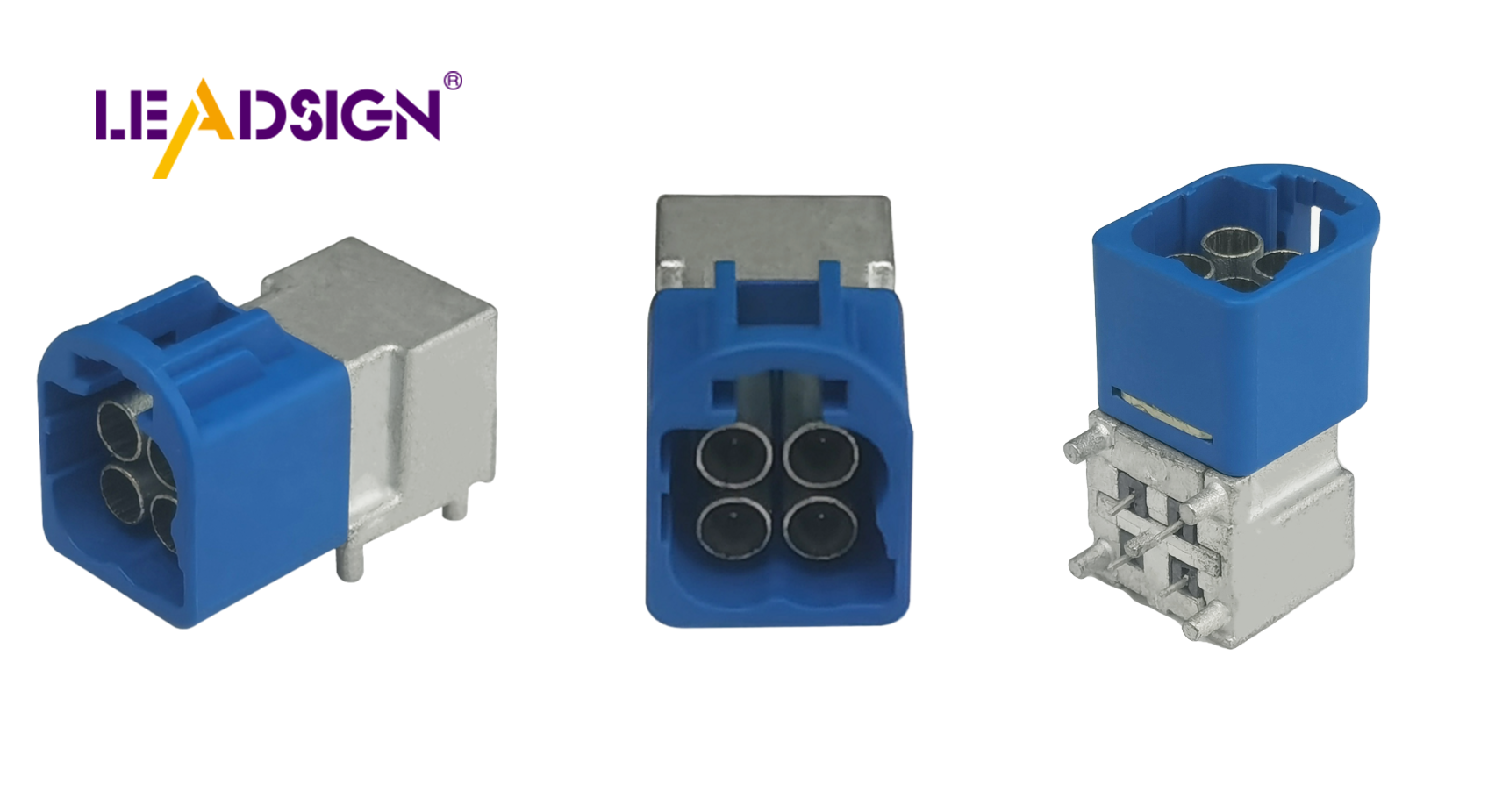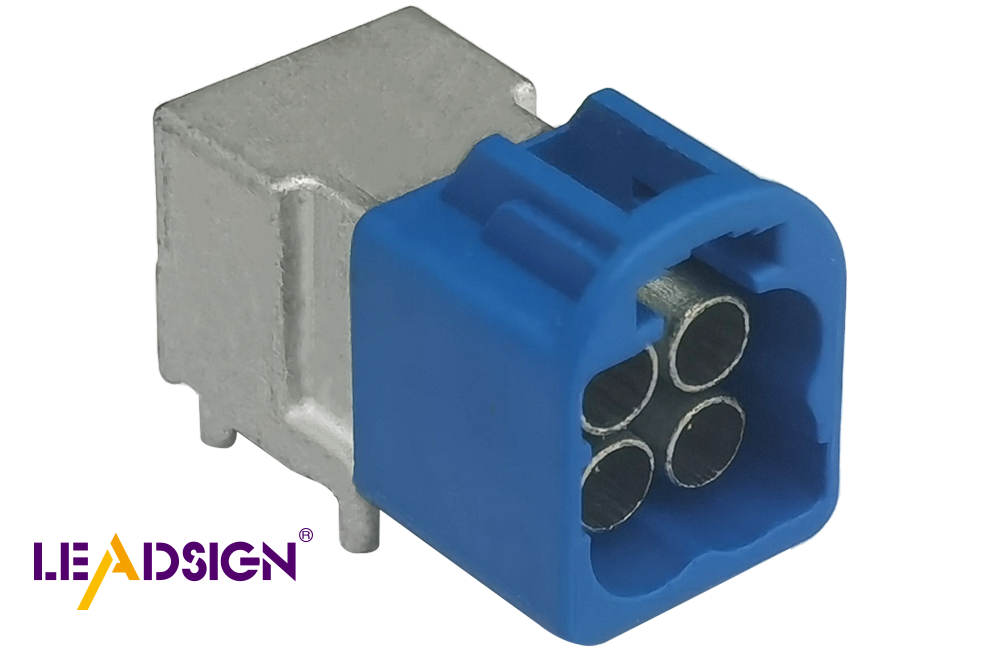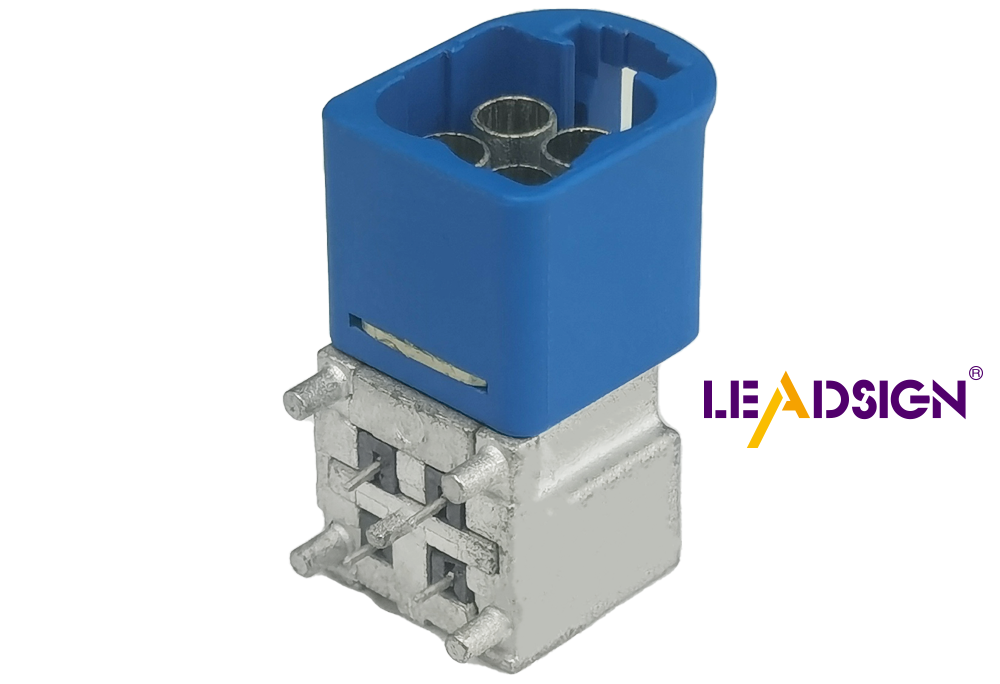Automotive Electrical Connectors Types: A Supplier's Guide

Automotive electrical connectors types are crucial components in vehicles. They facilitate seamless communication between various car parts. With the rise of electric and hybrid vehicles, a diverse range of connector types is essential. The automotive electrical connectors market is projected to reach $11.40 billion by 2030, underscoring their significance. These connectors play a vital role in ensuring the optimal performance of new vehicles and promoting eco-friendly transportation.
Automotive Electrical Connectors Types

High-Speed Data Connectors
High-speed data connectors are important for today's cars. They help send data quickly between different systems. HSD Connectors are special in this group. They handle fast data, perfect for cameras and USBs. They also work with digital entertainment systems and networks. These connectors are used in telecom too, like radio stations.
HSD Connector
The HSD Connector is key in car electronics. It helps transfer data well, which is needed for smart car systems like ADAS. The connector has strong locks and holds cables tightly. This keeps connections safe and stops data problems.
Applications in Modern Vehicles
Modern cars need high-speed data connectors a lot. They help infotainment, navigation, and safety features talk to each other easily. As cars get more techy, these connectors are needed more. They make driving better with things like live traffic info and streaming.
Power Connectors
Power connectors spread electricity around a car. There are different kinds for different needs. These connectors make sure all parts of the car get power to work right.
Types of Power Connectors
Car power connectors include AC, DC, and wireless ones. Each does something special. AC is for charging electric cars; DC handles big power jobs. Wireless ones charge without cords.
Use in Electric and Hybrid Vehicles
Electric and hybrid cars depend on power connectors a lot. These help share power so the battery works well with other parts of the car. As we move to greener transport, good power connectors become even more important.
Sensor Connectors
Sensor connectors link sensors to a car's main computer for real-time info.
Types of Sensor Connectors
Sensor types differ by use: temperature, pressure, or motion sensors exist. Each type can handle certain conditions to send correct data.
Role in Vehicle Safety Systems
In safety systems, sensor connectors matter a lot. They enable ABS brakes or airbags to work right when needed by keeping connections steady.
Mechanical Properties of Connectors

Automotive electrical connectors types need strong mechanical traits. These traits help them work well in cars. They include being tough, reliable, well-designed, and compatible. These are important to keep car electrical systems working right.
Durability and Reliability
Being durable and reliable is key for these connectors. They must handle tough weather and stress to last long.
Material Considerations
The materials used affect how long connectors last. Makers use tin, gold, silver, or brass for pins. Each has its perks. Gold fights rust well; tin is cheap and good for most uses. Special coatings like nickel or palladium make them stronger in bad conditions.
Environmental Resistance
Connectors must resist things like heat changes, wetness, and chemicals. Car connectors have seals to guard against these threats. This keeps them working even when it's tough outside, lowering the chance of failures.
Design and Compatibility
Design and compatibility matter a lot for connector success. Good design means they fit into car systems easily. Being compatible ensures they work with other parts smoothly.
Connector Design Features
Modern connectors have cool design features to boost performance. They have locks, crimp links, and strong cable grips. These stop accidental unplugs and keep connections safe—important for system reliability.
Compatibility with Vehicle Systems
Compatibility with vehicle systems is crucial for automotive electrical connectors types. Connectors should match different car models' needs like power levels and circuit setups. By doing this right, makers ensure their connectors fit into cars perfectly, making them run better.
Scientific Research Findings:
Smart connectors are changing the game by being more reliable and efficient in cars. With sensors inside, they watch over systems in real-time and help fix problems before they get big.
Key Manufacturers and Suppliers
The automotive electrical connectors market is lively and competitive. Some big companies lead here. They not only control the market but also bring new ideas and set rules.
Leading Companies
Overview of Top Manufacturers
TE Connectivity: This company is famous for many connector types. Their products are strong and last long, so car makers like them a lot.
Amphenol Corporation: Amphenol makes many connectors for all cars, even electric ones. They focus on good quality and new ideas, making them a top choice.
Molex: Molex makes high-quality connectors that make cars safer and better. They work hard on new technology to stay ahead.
Delphi Technologies: Delphi cares about being green. They make connectors for electric cars that fit modern needs well.
Market Share and Influence
These top companies have a big part of the market because they are important in the industry. In Asia Pacific, for example, their share is large due to more electric cars and government help for these vehicles. This shows how vital it is to have connectors that handle high power, like those in battery systems or charging stations.
Emerging Suppliers
New Players in the Market
Greenconn: Greenconn is getting known for smart solutions for cars. They care about good quality and happy customers.
Chief Enterprises: Chief sells Bosch parts in North America only and grows fast here with good partnerships and products.
Sunkye: Sunkye focuses on sealed connectors that handle tough conditions well, making them reliable in hard jobs.
Innovations and Trends
New suppliers are changing the connector world with fresh ideas. One trend is making smart connectors with sensors inside to watch systems closely, helping fix issues early to save time and money on repairs. Also, better fast-charging tech helps charge electric cars quicker, needing advanced connectors more than ever before.
The automotive electrical connector field keeps growing as both old and new companies add to its success. As we move towards eco-friendly transport options, these connectors become key to keeping vehicles running well.
Automotive electrical connectors are very important in today's cars. There are different types like high-speed data, power, and sensor connectors. Each type has a special job to do. When choosing connectors, think about how strong they are and if they fit the car's needs. Electric cars need more connectors because their systems are complex. In the future, smart connectors will help cars work better by watching systems closely. As cars get more advanced, these connectors will be key in improving car technology.
See Also
Navigating Ford Fakra Connectors
Essential HSD Connectors in Automotive Sector
Discovering Advantages of Fakra Auto Connectors

